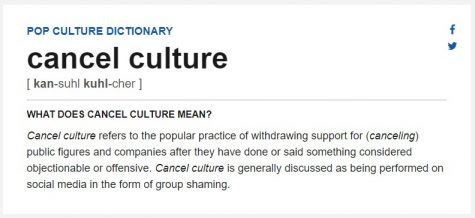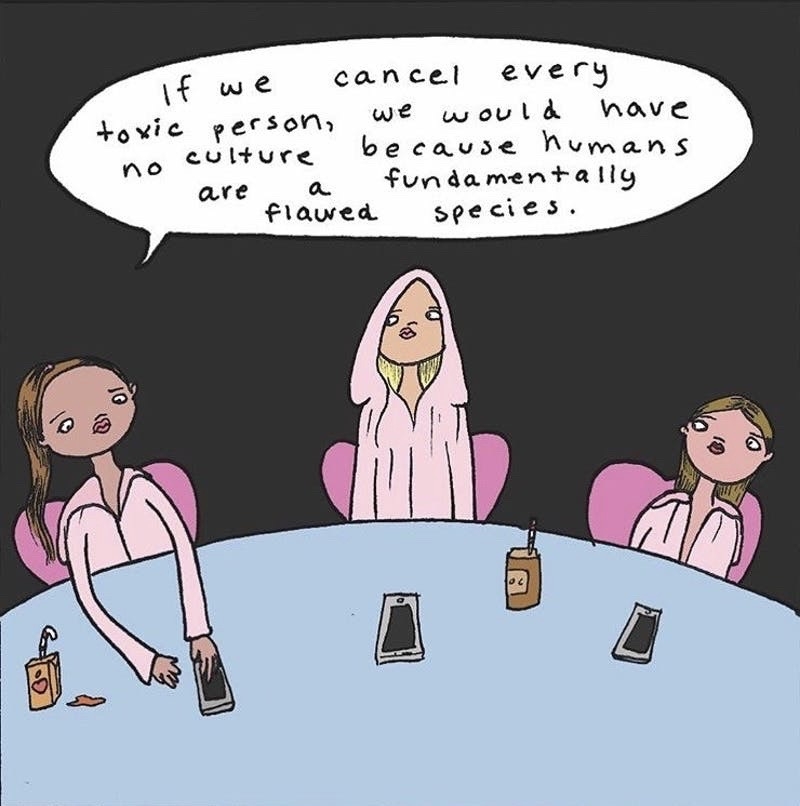Introduction
In the age of social media, public shaming has taken on a new and powerful form known as cancel culture. This phenomenon involves holding individuals or groups accountable for perceived wrongdoing, often resulting in social ostracization, loss of reputation, or even professional consequences. But why do people engage in public shaming? The field of moral psychology provides insight into the motivations behind cancel culture, exploring concepts such as moral outrage, group identity, and the human need for justice.

Read More- Brain Rot and How to Avoid It
The Psychological Roots of Public Shaming
Public shaming has existed for centuries, from medieval stocks to public floggings. In the digital era, social media amplifies this practice, allowing individuals to collectively punish perceived moral transgressors. Moral psychology suggests several key reasons why people engage in cancel culture:
1. Moral Outrage and Punishment
Moral outrage is a powerful emotion that arises when people witness violations of ethical or social norms. Studies have shown that individuals experience a sense of reward when punishing wrongdoers, activating the brain’s reward centers (Feinberg et al., 2019). This form of moral vigilantism can feel justified, as it aligns with an intrinsic desire to correct perceived injustices (Haidt, 2012).
2. Social Identity and Group Belonging
Cancel culture is often fueled by group dynamics. Social identity theory suggests that individuals derive a sense of self from their group affiliations (Tajfel & Turner, 1986). Engaging in cancel culture can reinforce one’s identity within a moral community, signaling shared values and strengthening group cohesion. When people participate in public shaming, they often gain social validation from peers, reinforcing their beliefs and moral superiority (Skitka et al., 2005).
3. The Role of Social Media and Anonymity
The online disinhibition effect suggests that individuals behave more aggressively online due to the perceived anonymity and lack of immediate consequences (Suler, 2004). On social media, people can quickly mobilize large groups, escalating moral outrage into mass shaming. The speed at which cancel culture spreads creates a digital “mob mentality,” where individuals may participate without fully considering the long-term consequences (Munger, 2017).
4. Desire for Social Change and Accountability
Many proponents of cancel culture see it as a tool for social justice, holding powerful individuals accountable for their actions. Historical injustices and systemic issues often fuel cancel movements, reinforcing the idea that public shaming can bring about meaningful change (Bromwich, 2018). However, critics argue that cancel culture can sometimes lead to disproportionate punishment, making redemption difficult (Ng, 2020).

The Consequences of Cancel Culture
While cancel culture can highlight real injustices, it also carries risks:
1. Psychological Toll on the Canceled Individuals
Being publicly shamed can have devastating psychological effects, including anxiety, depression, and suicidal ideation (Wetherell et al., 2013). Cancel culture often ignores the possibility of personal growth and rehabilitation, branding individuals as permanently irredeemable.
2. Chilling Effect on Free Speech
Fear of being canceled can lead to self-censorship, where individuals avoid expressing opinions out of fear of backlash. This can limit open discourse, hindering democratic debates and intellectual diversity (Williams, 2021).
3. The Risk of Misinformation and Overreaction
Social media-driven cancel movements can sometimes be based on misinformation or out-of-context statements. This rush to judgment can lead to wrongful cancellations, where individuals suffer severe consequences for misunderstandings (Vosoughi et al., 2018).
Conclusion
Cancel culture is a complex moral and psychological phenomenon rooted in a desire for justice, group identity, and moral signaling. While it can serve as a tool for accountability, its potential for overreach and long-term consequences raises important ethical questions. Understanding the moral psychology behind cancel culture can help society find a balance between accountability and compassion, fostering a culture of constructive dialogue rather than punitive shaming.
References
Bromwich, J. E. (2018). The psychology of #CancelCulture. The New York Times.
Feinberg, M., Willer, R., & Kovacheff, C. (2019). The nature of moral outrage: Evolutionary and psychological perspectives. Trends in Cognitive Sciences, 23(7), 527-539.
Haidt, J. (2012). The Righteous Mind: Why Good People Are Divided by Politics and Religion. Pantheon Books.
Munger, K. (2017). The rise of partisan online shaming. New Media & Society, 19(11), 2012-2030.
Ng, E. (2020). No Grand Pronouncements Here…: Reflections on Cancel Culture and Digital Media Participation. Television & New Media, 21(6), 621-627.
Skitka, L. J., Bauman, C. W., & Mullen, E. (2005). Political tolerance and coming to psychological closure following September 11, 2001. Personality and Social Psychology Bulletin, 31(4), 447-460.
Suler, J. (2004). The online disinhibition effect. CyberPsychology & Behavior, 7(3), 321-326.
Tajfel, H., & Turner, J. C. (1986). The social identity theory of intergroup behavior. Psychology of Intergroup Relations, 7-24.
Vosoughi, S., Roy, D., & Aral, S. (2018). The spread of true and false news online. Science, 359(6380), 1146-1151.
Wetherell, M., Smith, J., & Campbell, C. (2013). Public shaming and social control in the digital age. Social Research Journal, 21(3), 405-421.
Williams, B. (2021). Cancel culture and free speech: A modern paradox. Journal of Ethics and Society, 15(2), 90-108.
Subscribe to PsychUniverse
Get the latest updates and insights.
Join 3,043 other subscribers!
Niwlikar, B. A. (2025, March 19). Cancel Culture and 4 Psychological Reasons Behind It. PsychUniverse. https://psychuniverse.com/cancel-culture/



